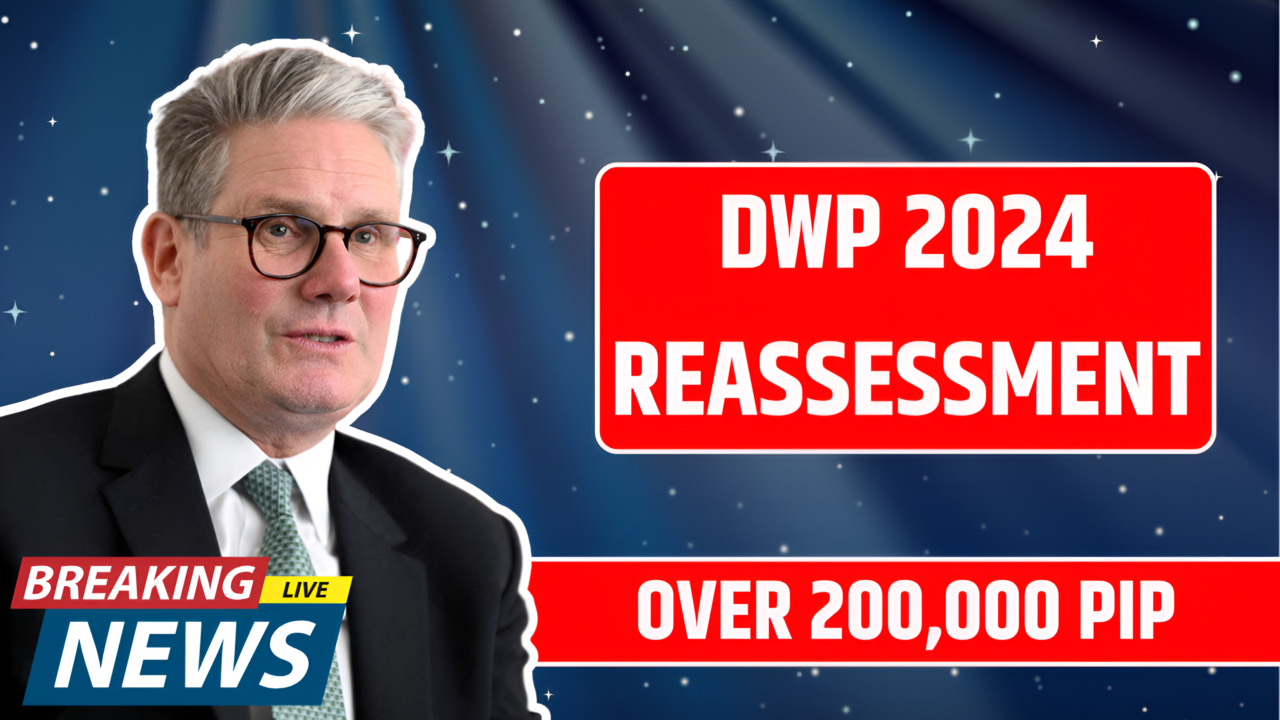The Department for Work and Pensions (DWP) has recently concluded its 2024 reassessment of Personal Independence Payment (PIP) claims, resulting in the cancellation of over 200,000 claims. This significant development has left many individuals concerned about their financial stability and access to essential support. In this blog post, we’ll explore the reasons behind these cancellations, the reassessment process, and what affected claimants can do to navigate these changes.
What Is PIP and Why Are Reassessments Conducted?
Personal Independence Payment (PIP) is a UK benefit designed to support individuals living with long-term health conditions or disabilities. It helps cover extra costs associated with daily living and mobility needs. Unlike other benefits, PIP is awarded based on how a condition impacts a person’s daily life rather than the condition itself.
Why Reassessments Are Necessary:
- Eligibility Verification: The DWP conducts periodic reassessments to ensure that recipients continue to meet the criteria for PIP.
- Changes in Circumstances: Reassessments may be triggered by health improvements, worsening conditions, or changes reported by the claimant.
- Policy Updates: Adjustments to eligibility criteria or government reforms can also lead to reassessments.
During a reassessment, the DWP reviews the claimant’s current situation to determine if they still qualify for PIP or if adjustments to their award are needed.
The 2024 Reassessment Outcomes
The 2024 reassessment process has been one of the most extensive in recent years, with over 200,000 PIP claims cancelled. This decision affects a considerable portion of reassessed cases and highlights a stricter application of eligibility criteria.
Key Statistics:
- Total PIP Claimants: Approximately 3.3 million in England and Wales, with 220,000 in Scotland.
- Claims Cancelled: Over 200,000 claims were discontinued following reassessment.
- Highest Award Recipients: Only 36% of claimants received the highest level of support.
Factors Influencing Cancellations:
- Increased Scrutiny: The DWP has implemented stricter verification processes to ensure accurate assessments.
- Demographic Shifts: Changes in the claimant population have impacted eligibility trends.
- COVID-19 Impact: The pandemic has influenced health conditions and reassessment outcomes.
Why Were Claims Cancelled?
The cancellation of PIP claims can be attributed to several factors, including changes in eligibility criteria and the transition to Universal Credit. Here’s a closer look at the reasons behind these cancellations:
Eligibility Reassessment:
- Claimants must demonstrate that their condition continues to meet the criteria for PIP.
- Health improvements or insufficient evidence can lead to claim denial.
Transition to Universal Credit:
- The government is gradually moving claimants from legacy benefits like PIP to Universal Credit.
- This transition has resulted in stricter eligibility requirements and the discontinuation of PIP for many individuals.
Documentation Issues:
- Incomplete or outdated medical evidence can result in claim cancellations.
- Claimants are encouraged to provide thorough and up-to-date documentation during reassessments.
Steps to Take If Your Claim Was Cancelled
If your PIP claim has been cancelled, it’s important to understand your options and take proactive steps to address the situation. Here’s what you can do:
1. Request a Mandatory Reconsideration
- You have the right to challenge the DWP’s decision by requesting a mandatory reconsideration.
- Provide additional evidence or clarification to support your case.
2. Appeal to an Independent Tribunal
- If the mandatory reconsideration is unsuccessful, you can appeal to an independent tribunal.
- Seek legal advice or support from advocacy organizations to strengthen your appeal.
3. Check Eligibility for Other Benefits
- Explore alternative benefits, such as Universal Credit or Employment and Support Allowance (ESA).
- Use online benefit calculators to determine your eligibility.
4. Seek Support from Charities
- Organizations like Citizens Advice and Disability Rights UK can provide guidance and assistance.
- They can help you navigate the appeals process and access additional resources.
Preparing for Future Reassessments
To avoid claim cancellations in the future, it’s essential to be well-prepared for reassessments. Here are some tips to help you stay ahead:
1. Keep Medical Evidence Up-to-Date
- Regularly update your medical records and ensure they accurately reflect your condition.
- Submit detailed evidence during reassessments to support your claim.
2. Understand the Criteria
- Familiarize yourself with the PIP eligibility criteria and descriptors.
- Tailor your application to highlight how your condition impacts your daily life.
3. Seek Professional Advice
- Consult with a benefits advisor or advocacy organization for guidance.
- They can help you prepare a strong case and navigate the reassessment process.
The Impact on Claimants
The cancellation of over 200,000 PIP claims has had a profound impact on individuals who rely on this benefit for daily living and mobility support. Many claimants are now facing financial uncertainty and challenges in accessing essential services.
Emotional and Financial Strain:
- The loss of PIP can lead to increased stress and anxiety for affected individuals.
- Claimants may struggle to cover the costs of care, transportation, and other necessities.
Advocacy and Awareness:
- Advocacy groups are calling for greater transparency and fairness in the reassessment process.
- Increased awareness of the challenges faced by PIP claimants can lead to policy improvements.
Final Thoughts
The 2024 DWP reassessment has brought significant changes to the PIP landscape, leaving many claimants concerned about their future. While the cancellation of over 200,000 claims highlights the importance of thorough preparation and documentation, it also underscores the need for a fair and transparent process.
If you’ve been affected by these changes, remember that you have options and support available. By understanding the reassessment process, preparing for potential challenges, and seeking guidance from advocacy organizations, you can navigate these changes effectively.
For more information and resources, visit the DWP Official Website or consult with trusted advisors. Together, we can work towards a system that supports those who need it most.
F&Q
Q1: What is PIP and who is it for?
PIP is a UK benefit for people with long-term health conditions or disabilities to help cover daily living and mobility costs
Q2: Why were over 200,000 PIP claims cancelled in 2024?
Due to stricter reassessment criteria, health improvements, and the transition to Universal Credit
Q3: Can I appeal if my PIP claim was cancelled?
Yes, first request a Mandatory Reconsideration, then appeal to an independent tribunal if needed
Q4: What if I don’t qualify for PIP anymore?
Check eligibility for other benefits like Universal Credit or ESA
Q5: How can I prepare for future reassessments?
Keep medical evidence updated, understand PIP criteria, and seek professional advice or support


